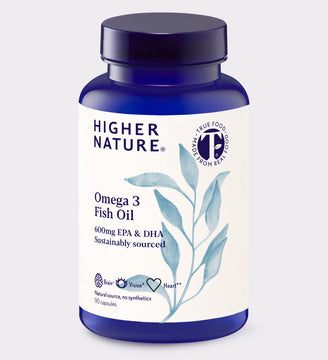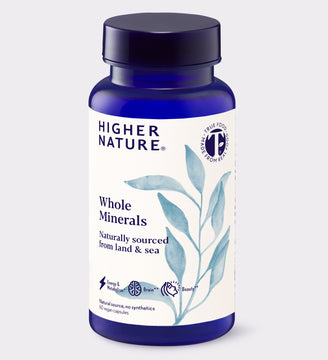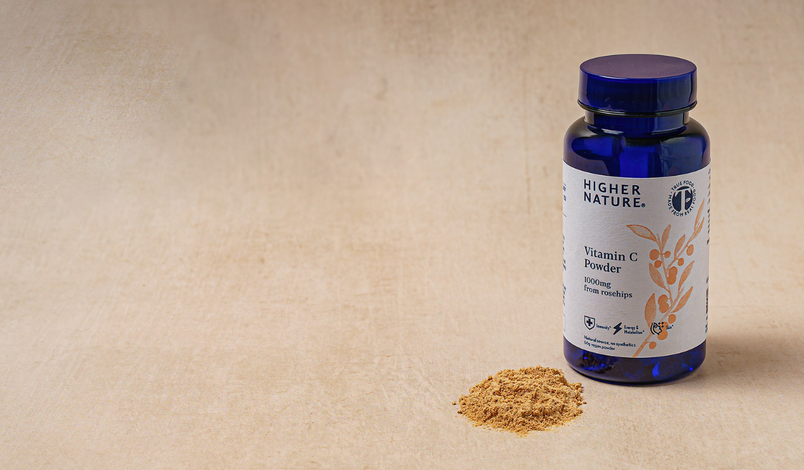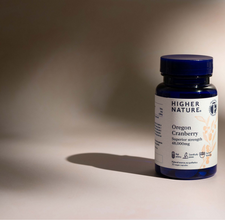
Looking after your child’s mental health
Elizabeth Houston - Higher Nature Nutritional Therapist - Dip BCNH mbant mCNHC
Looking after your child’s mental health
It’s normal for children to have occasional fears and worries, but some children find dealing with feelings and pressures particularly difficult.
There are many reasons children may be suffering from stress or anxiety. Issues at school, an upsetting event, falling out with friends or picking up on parents’ anxieties.
Since its children’s mental health awareness week this February, here at Higher Nature we thought we’d shed some light on ways we can help children deal with these feelings.
A child may not tell you that they are feeling worried or stressed - young children especially do not have the words to describe how they are feeling. Look out for any change in behaviour including a change in eating or sleeping patterns or complaining of tummy aches. You may notice their marks falling at school or that they start playing up to get attention. They may even develop new habits such as nail biting, bedwetting or tics.
What can help?
- The most important thing is that your child feels listened to. They may not tell you if you ask but let your child know you are there when they are ready to talk.
- If your child doesn’t want to open up, don’t push them, spend some time with them one-on-one if possible and do something fun together - hopefully they will feel relaxed and cared for enough to start talking.
- Reassure your child. You might not think their worries are important but to them they feel very real.
- Try not to over react, no matter how big their problem is try to stay calm as your anxieties will make theirs feel worse.
- Younger children might benefit from a worry box. This is a place they can write down their thoughts and shut them away. You can go through these worries and try to come up with solutions together.
- Deep breathing exercises can help children feel more relaxed. Ask your child to breathe in for 3 seconds, hold for 1 second and breathe out for 3 seconds, repeat a few times. Younger children might enjoy doing this while lying on the floor with their favourite toy resting on their chests - they can then watch their toy rise and fall with their breathing.
- Make sure you factor in time for your child when there is nothing planned. Over stimulation is a big problem for kids. Having time to be bored, come up with their own entertainment or just resting is important.
- Encourage your child to get outside, even when the weather is not perfect - time out in nature can really lift a low mood.
What nutrients can help?
A healthy diet is vital to ensure adequate nutrients. Ensure they have protein, fats and carbohydrates with every meal and as many different vegetables as possible! Keep sugar and caffeine as low as possible.
L-theanine is an amino acid found naturally in green tea. Theanine helps feelings of calm, encouraging better sleep and helping to ease anxiety. Theanine has been widely studied for its effectiveness.
Calcium and magnesium have long been associated with sleep – remember having warm milk at bedtime? Working together, these minerals play a role in our sleep/wake cycle; magnesium also helps aid relaxation and is used for anxiety and stress. Magnesium is found in leafy green vegetables, nuts, avocados, lentils and beans. Calcium is also found in almonds, small oily fish, green vegetables, dairy and tofu.
Relax and Unwind is a bedtime drink that contains calcium, magnesium alongside other nutrients such as theanine, vitamin C and vitamin D and is suitable from the age of three.
Omega oils, the healthy fats found in oily fish such as sardines, salmon, mackerel and anchovies are known as an essential fat, which means that you need to obtain them from your diet as your body can’t manufacture them. Omega 3 fats are needed for brain health and consumption can help reduce anxiety. Now, I don’t know about your kids but mine certainly aren’t rushing to the table for a portion of oily fish, so I give them a daily supplement. For vegans or anyone avoiding fish, flax seed oil is a plant based alternative.
Worry Not spray
This pleasant tasting spray containing a blend of relaxing nutrients and herbs, is suitable for children over 13 and may help to restore calm in stressful situations. Perfect to keep handy for exam season.
If you feel that your child is experiencing persistent severe low mood, or if it is having an impact on daily life, please seek professional advice.


















